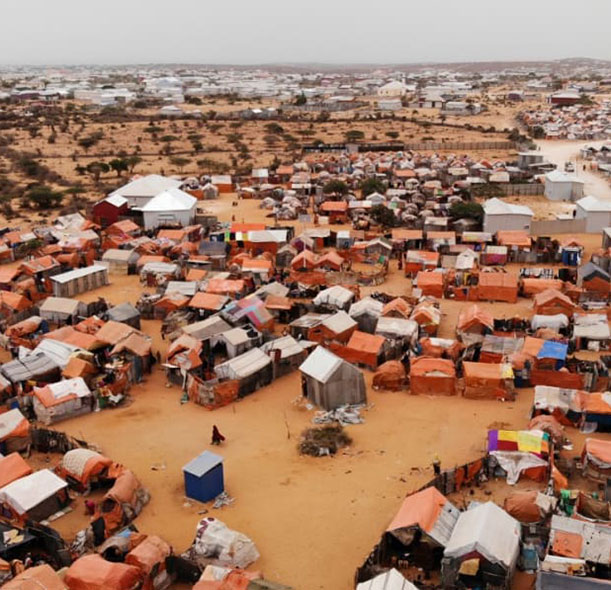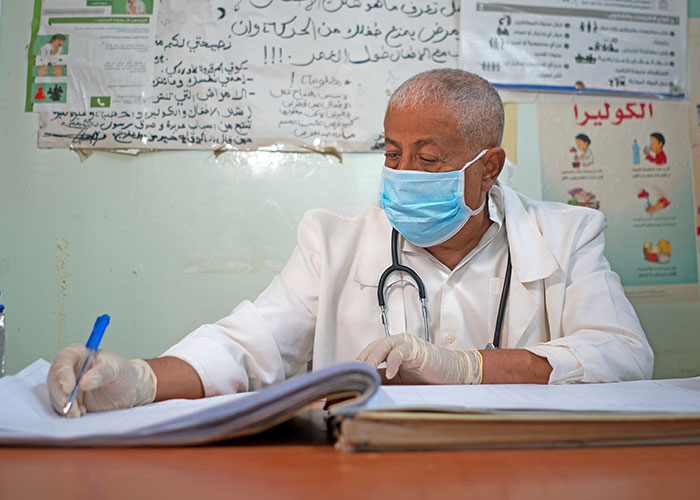- Global nutrition experts Action Against Hunger warns that ignoring food security in Covid-19 responses could lead to children “starving in their homes”
- Restrictions on movement will increase food insecurity for vulnerable populations
- The global organisation is calling on world governments to do more to support less developed countries and warns that failure to do so will see Covid-19 returning in the months and years ahead
According to the latest State of Food Security and Nutrition in the World report, global hunger levels rose last year for the third consecutive year. Today, 820 million people do not have enough food to eat and many of these are now facing some sort of restriction on their movement. Africa is the region with the highest prevalence of undernourishment at 20 percent, and in East Africa the figure stands at 31 percent.
More than two-thirds of African states have now imposed restrictions on movement, while similar measures are in place in other countries with high food insecurity including, India, Haiti and Afghanistan, amongst others.
Juliet Parker, Director of Operations for Action Against Hunger UK:
“Tackling Covid-19 is a monumental challenge and restrictions on movement are a key element to containing the spread of the disease. But we cannot ignore the fact that making parents stay at home will mean many are no longer able to provide for their families. There is a real risk of children starving in their homes as their families are forced to wait out this crisis.
“We work in more than 40 countries around the world and are hearing the same message from parents every day: how will I feed my children? There is a very real danger that in our bid to beat Covid-19 we could inadvertently sentence thousands if not millions of children to a premature death.
“As an organisation, we are finding it increasingly difficult to reach vulnerable communities who are already reeling from the impacts of conflict and climate change. Not only are restrictions impacting on their own ability to support their families, but in many countries where we work, aid agencies are facing the suspension or limitation of life-saving deliveries of food, water and medicine. For these communities, it is hunger, not Covid-19, that they are afraid of.
“We need global governments to wake up to the scale of this challenge and to work with INGOs to ensure that Covid-19 responses don’t compromise existing humanitarian efforts. If families have to stay indoors in order to beat Covid-19, there needs to be measures in place to ensure that their food security isn’t compromised.
“Unless we have a joined-up approach to tackling Covid-19, there is nothing to stop it returning to our shores in the months and years ahead.
“Malnutrition already accounts for almost half of all deaths of children under 5, globally. In 2018, there were 47 million children suffering from malnutrition, 17 million of which suffered the most severe form, which is life-threatening and requires urgent treatment.
We have a range of spokespeople available across the Middle East, Asia, Africa and the Americas. To arrange an interview, please contact Anthony Gale at [email protected] or call 0208 293 6130.
Notes to editors
- Action Against Hunger is the world’s leading charity in the fight against child hunger, treating more young children for life-threatening hunger than any other charity.
- In 2018 Action Against Hunger supported more than 21 million people across 47 countries.
Alongside our life-saving work in tackling malnutrition and responding to crises, we are now responding to the Covid-19 outbreak. Below are a few examples of our work
- In Mogadishu, Somalia, we are a lead health actor and have been working closely with the government for many years. More than 70 of our staff members have been seconded to the government, transferring critical expertise in emergency planning and disease response. We have already provided two vehicles to the Ministry of Health for COVID-19 operations and are committed to support 33 staff, including doctors and nurses, to staff quarantine facilities we are establishing in partnership with the government.
- In Bangladesh, we have one of the largest humanitarian operations in Cox’s Bazar with 900 staff members and 1300 volunteers. We are working with the government to provide hygiene kits, installing handwashing facilities, supporting local health infrastructure and establishing quarantine and emergency spaces.
- In Ethiopia, we directly support and assist 6 primary hospitals, 92 health centres and 429 health posts in five regions. We are currently sourcing critical medical supplies and working with rapid response teams to prepare for a potential outbreak.
- In Jordan, we are supporting Syrian refugees with cleaning supplies, hygiene kits and WASH interventions.
- In Colombia, we are providing families with water treatment and storage systems, as well as prevention kits. We have installed water systems in shelters and public spaces and are delivering food parcels and/or vouchers to communities vulnerable to food insecurity.
- In Haiti, Action Against Hunger is the lead in cholera eradication in that North West of the country and are preparing to scale up our cholera programs to incorporate COVID-19 prevention and infection control. With additional funding, we are also planning to scale up our food security and livelihood resilience programming



